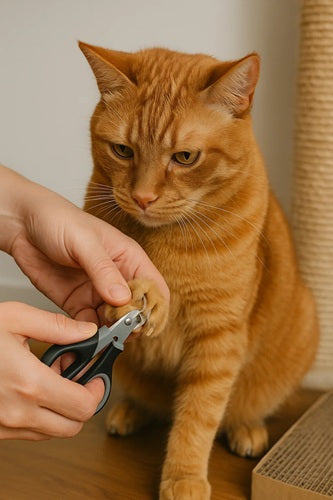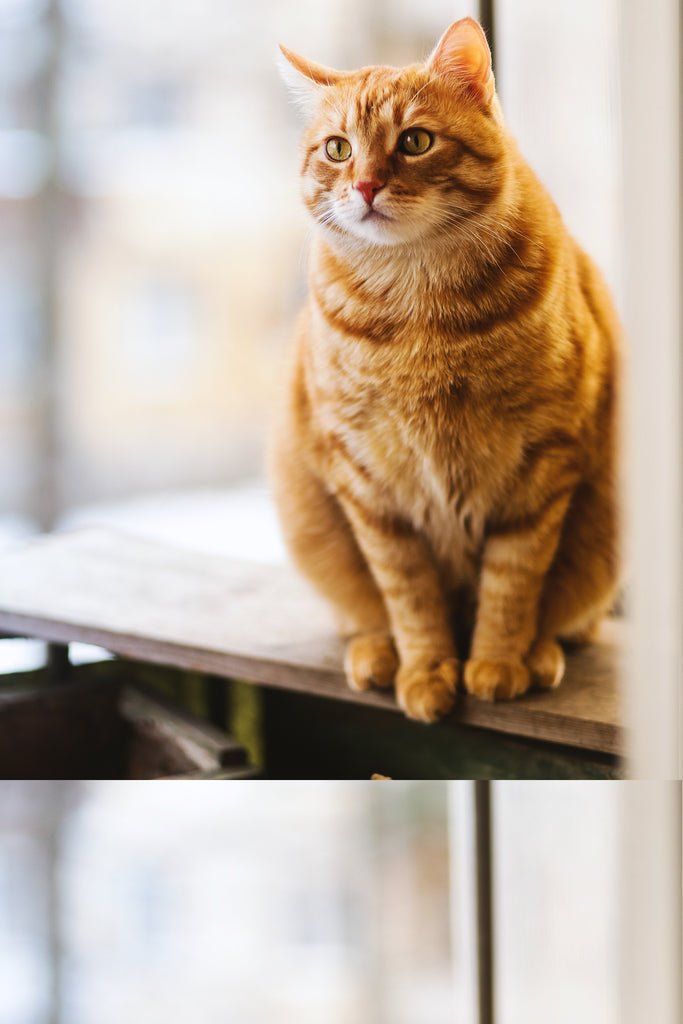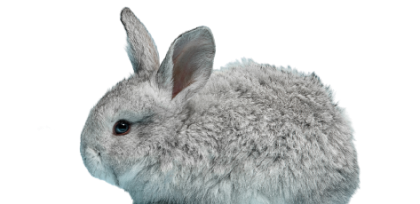Obesity In Cats And How To Deal With It
Feline obesity is a critical condition but fortunately, it can be treated. Obesity is a condition involving an accumulation of excess body fat. It's a medical problem that increases the risk of other diseases and health problems. Obesity is common among cats, in fact, it has become so common that many people don’t pay attention or acknowledge it as a problem. It is in your cat’s best interest that you treat this condition to avoid the risk of attracting any health issues. In this blog, we will help you understand why it is necessary to manage obesity in cats and how it can be treated-
What are the risks with obesity?
To understand the severity of this condition, you should be familiar with the risks involving it. Keeping your cat obese is not recommended as it can cause some life-threatening diseases.
Obesity shortens a cat’s life and makes them more likely to develop diseases. It reduces the cat’s ability to play and participate in various activities that require physical strength. Over a period of time, the cat will get accustomed to a reduced activity level causing a dip in her strength and fitness. Obesity develops an increased risk for many types of cancers, diabetes, heart disease and hypertension. It also leads to Osteoarthritis, a degenerative joint disease, causing joint pain and stiffness, making it difficult to move or play without getting an ache in the joints. Obesity also causes a higher risk of urinary infections.
Causes of obesity:
There are many causes of obesity in cats. Cats who get neutered may develop a decreased metabolism rate and a rise in appetite leading to weight gain. Older cats are less active physically, therefore they are more prone to gaining weight than younger ones. Cats who have restricted activity have fewer opportunities to exercise and burn calories as compared to cats who are allowed to experience the outdoors regularly, leading to weight gain. Poor feeding habits, improper measurements of food proportion, too many treats, etc also cause acclimation of fat in the body. From a genetic angle, female cats are predisposed to gaining weight more than a male cat. Side-effects to certain medications also cause weight gain.
How to treat obesity?
1. Improve diet:
Dietary changes/modifications are the most critical and effective ways through which obesity can be treated. It is most effective if dietary adjustments are made gradually and with veterinary consultation so that your cat loses weight gradually. A sudden drastic drop in weight is dangerous for an obese cat as it can cause a potentially fatal liver disease. When there is a sudden change in metabolism, fat gets deposited within the liver. Hence, minimizing high calorie intake at a steady pace is a more effective way to help lose the excess fat and acquire an ideal body weight. It is also important to reduce the number of treats being given as they contain more calories which obviously hampers weight loss. Some dietary modifications might need to be made to achieve the required nutritional goal, hence a consultation with the vet is critical. The vet would be able to guide you to develop an appropriate diet plan which provides essential nutrition while reducing the weight.
2. Exercise:
Exercise is very important for steady weight loss. This may include interactive toys, chasing laser points, playing fetch. Any activity/toy that encourages movement can help manage weight and keep your cat healthy. Cat furniture like cat trees and scratching boards can also be used as a means to exercise. Scratching the board, climbing up and down the cat tree serve as a workout for cats. Daily exercise with proper food intake will successfully help your cat lose weight in a healthy manner.
3. Routine visit to the vet:
As mentioned earlier, there are several causes of obesity. Obesity is not solely caused due to overeating or lack of physical activity. There could even be some medical reasons that are causing obesity in cats. These can be better identified and treated by your vet. Hence, regular check-up’s by the vet are critical in ensuring the well-being of your cat.
It can take a long time to see safe and noticeable results in your cat’s weight when you first introduce weight management. But it's best to stick with these healthy changes because the long term benefits of overcoming obesity are critically important.








